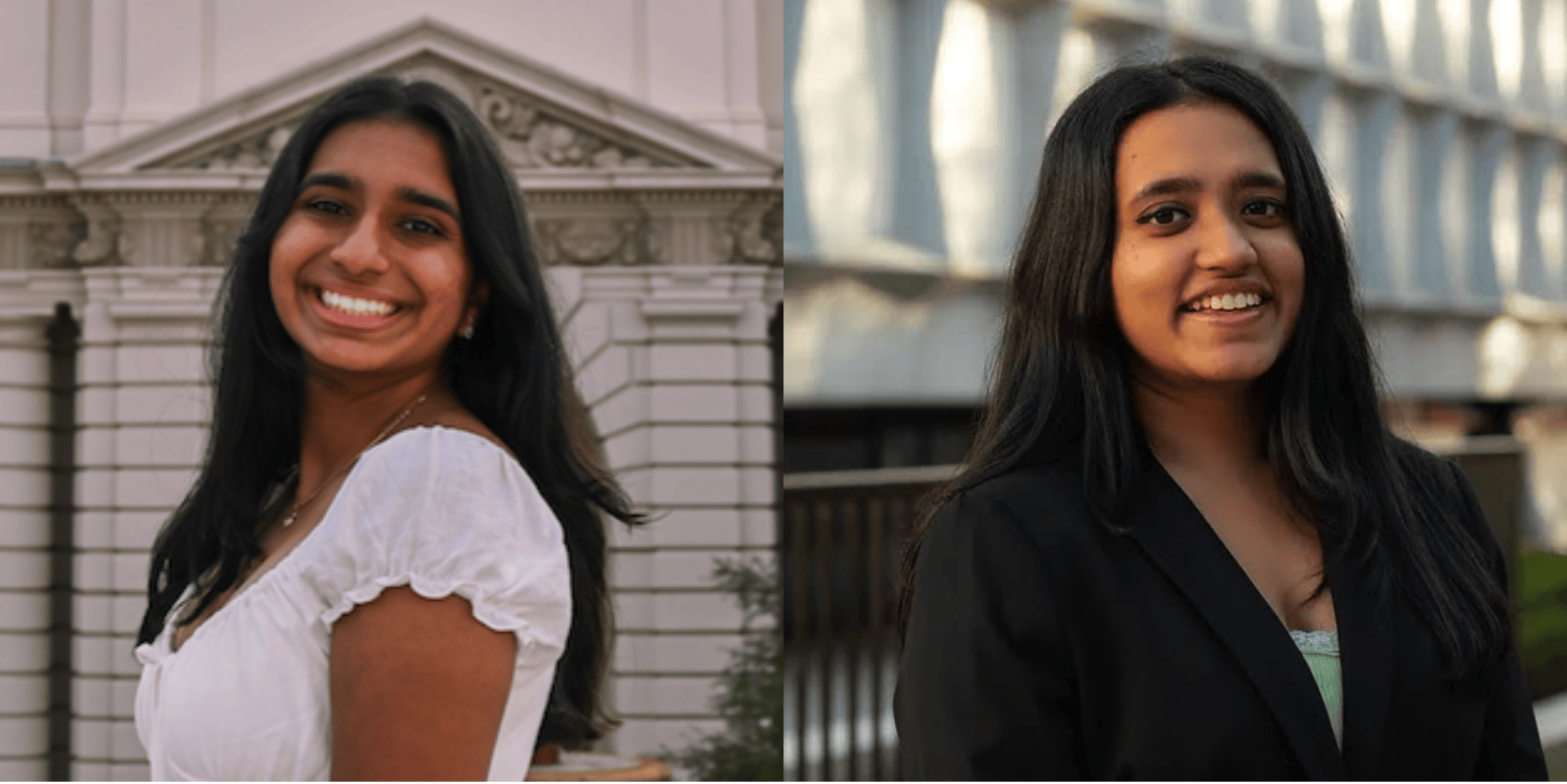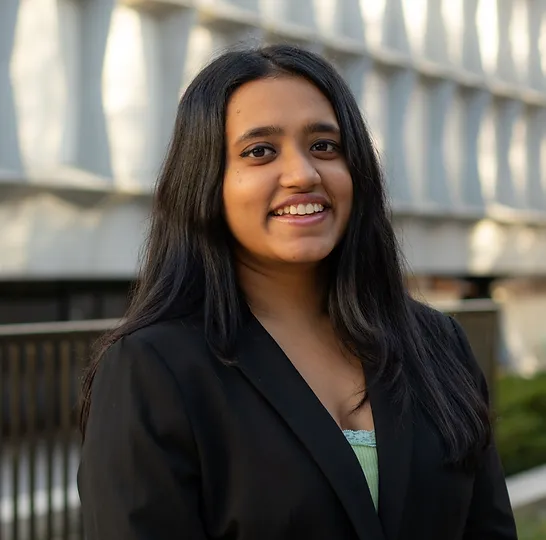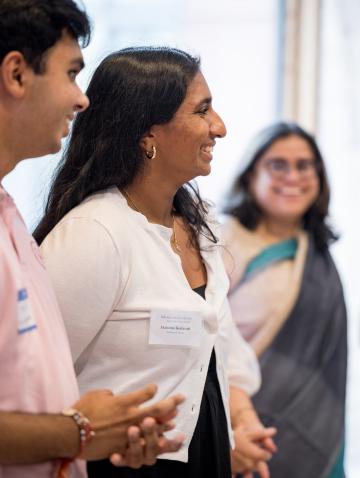SASC Congratulates 2025 Graduating Seniors

The South Asian Studies Council is proud to celebrate the achievements of two graduating seniors who have made a lasting impact on our Council and community. We wish them all the best as they embark on exciting new adventures after Yale.
Eesha Bodapati

Eesha Bodapati is graduating as a double major in South Asian Studies and Cognitive Science. Through the South Asian Studies major, she took classes across a variety of different fields, including history, political science, religious philosophy, economics, literature, and theatre. Her senior thesis, advised by SASC Chair and Associate Professor of History Rohit De, focused on women’s inheritance of business property in India following the 2005 Hindu Succession Act amendment. Outside of academics, she has also served as co-captain of Yale Kalaa, Yale’s South Asian classical dance team, and as co-president of Yale Hindi Debate.
Reflecting on her experience as a South Asian Studies major, Bodapati stated, “I have really appreciated the opportunity to engage with my cultural background through an academic lens. It taught me to think critically about different perspectives and navigate complex cultural contexts. It has given me a more global mindset, which will help me approach challenges with empathy and a deeper understanding that will serve me throughout my career.”
Following graduation, Bodapati will be starting as an Analyst at BlackRock in their Aladdin Client Business Team based in New York City.
Mahima Kodavati

Mahima Kodavati is graduating as a double major in Economics and Sociology, with a Health and Society concentration. Her senior thesis, titled “The Socialization of First- and Second-Generation Indian Immigrant Physicians into the United States Healthcare System,” was advised by SASC faculty member Brian Wahl, Assistant Professor in Epidemiology of Microbial Diseases at the Yale School of Public Health. Kodavati credits a South Asian Studies course she took in with former Singh Postdoctoral Fellow Kiran Kumbhar on Biomedicine in the Global South with sowing the first seeds of her interest in her thesis topic. “Professor Kumbhar was a doctor in India before he came to the US and got his PhD at Harvard. Getting to hear his perspective about being a physician in India, and then his perspective of the American healthcare, is where interest for my thesis kind of sprouted,” she reflected.
When the time came to begin work on her thesis two years later, SASC Program Director Kasturi Gupta connected her with Professor Wahl, who had just recently arrived at Yale. Kodavati feels her thesis benefitted immensely from Professor Wahl’s own knowledge of the field as well as his ability to steer her toward relevant resources, whether sharing connections with external collaborators and organizations or toward other Yale faculty with deeper knowledge of particular historical issues. If she ever raised a topic that Prof. Wahl had less familiarity with, Kodavati said, “he knew exactly where to point me.”
Kodavati also reflects fondly upon her engagements with SASC through Hindi classes, where she particularly enjoyed the sense of community among students fostered by the Hindi faculty. Perhaps more significant, however, is her experience serving as a Student Fellow at the Council for three years. For Kodavati, working as a Student Fellow helped her to build more personal connections with faculty members and, when coupled with her role as Co-President of Yale’s South Asia Society, to serve as a liaison in connecting other students with resources offered by the Council. She says, “I found that a lot of students came to me with their questions or concerns, and it was a privilege to be in that position.”
As Kodavati prepares to begin a career in consulting through a position as an Analyst at Altman Solon in Boston, she believes that her experience supporting a wide range of SASC events and programs, including lectures, conferences, and international visits, will inform her work. “Logistically having to think through events, I think, will be really helpful in my future job as a consultant because that is kind of what we do…give advice on how to [strategize logistical issues] to our clients.”